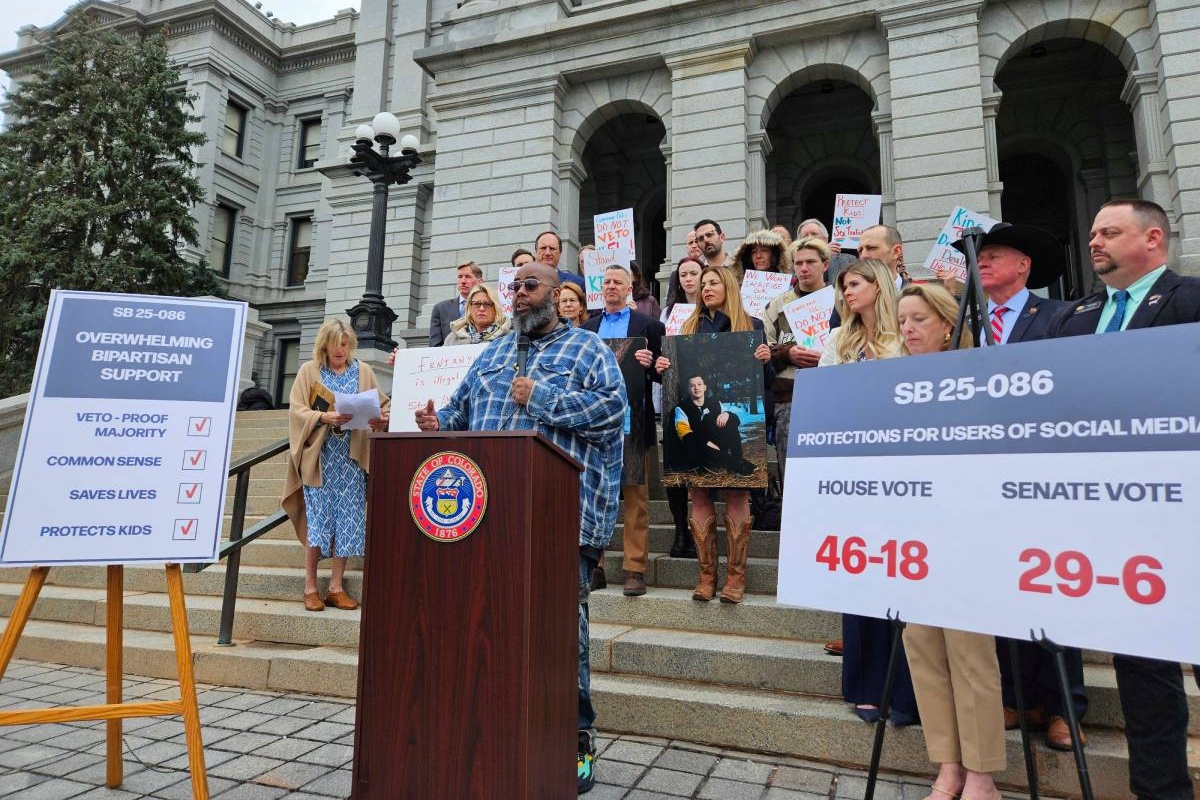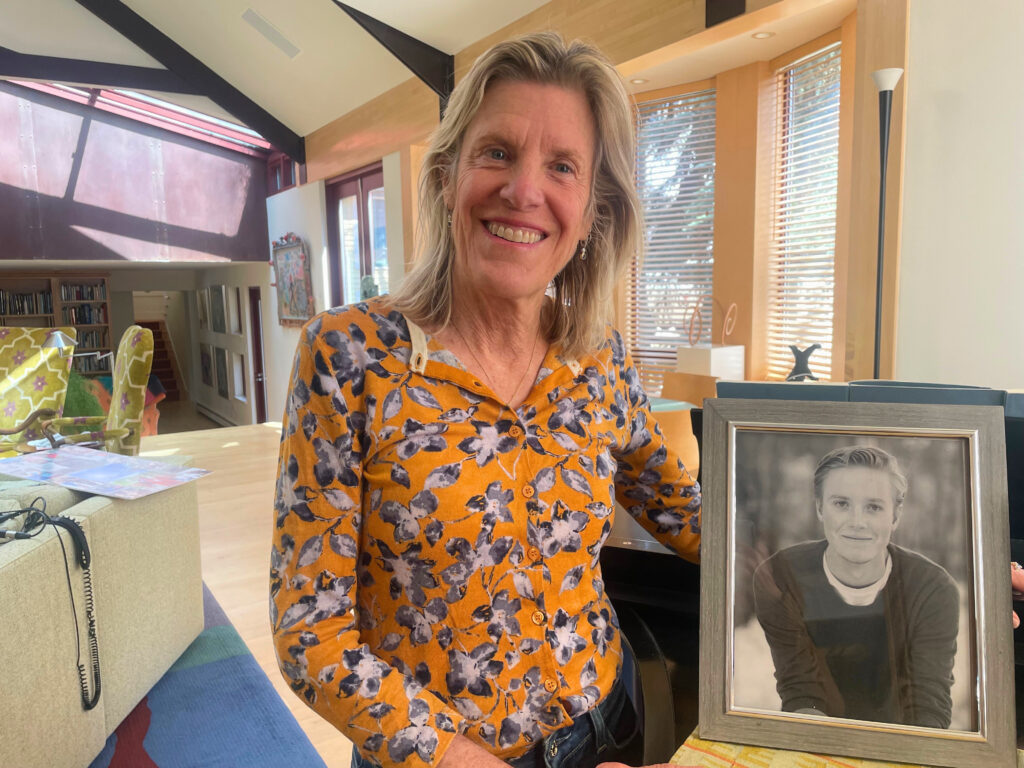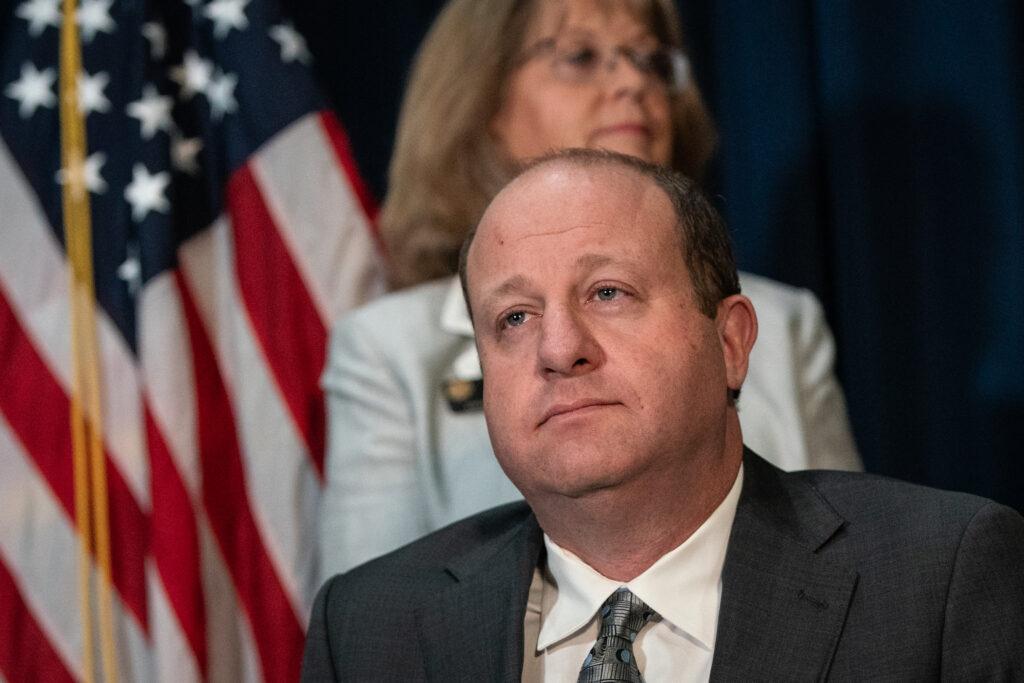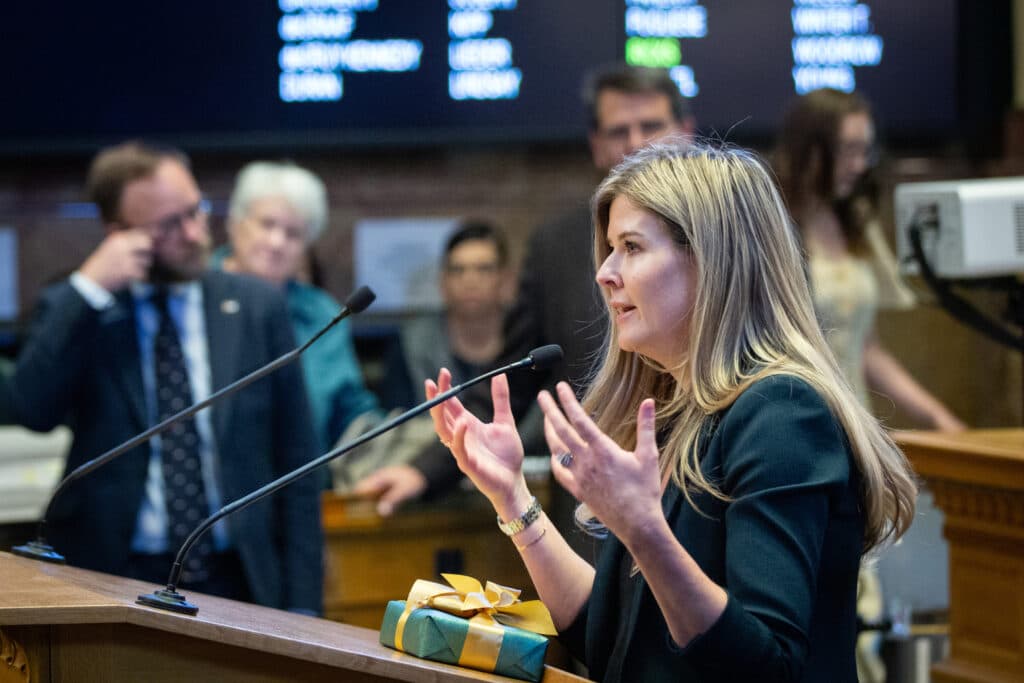
On November 8, 2020, Chelsea Congdon’s life changed forever.
She and her husband had invited friends over for a backyard party at their home in Old Snowmass. They were building a bonfire when a car from the Pitkin County Sheriff’s Department pulled up.
“The policeman came and found us there and let us know that our son Miles had died in Boulder and his body had been discovered that morning,” she recently recalled to CPR News.
“It felt very unreal. And it feels as if your entire life just shatters on the floor and for some reason, you're still standing. I mean, it doesn't make any sense. It's impossible to put together losing a kid.”

Her son, Miles Brundige, was a 19-year-old sophomore at the University of Colorado. He’d grown up big mountain skiing, racing down backcountry slopes using natural objects as jumps and obstacles. He was a talented pianist and, as his mom describes it, the life of the party, a master prankster they called “Smiles.”
“He was growing up. He was very social. He was figuring out how to have a life of his own and live in an apartment and do all of those things that you figure out at that age.”
Days earlier, Miles had dislocated his shoulder. The hospital in Boulder reset it and sent him home with four Percocet.
Investigators pieced together that, after he used up his prescription, he tried to buy more on Snapchat. But the pills he received were laced with enough fentanyl to kill three people. Congdon said that when the Boulder Sheriff’s Department reached out to Snapchat for more information about the account holder, the company never responded, and the investigation went cold.
“So that case was never solved. We got nowhere. It is an insult. It's pain on top of everything else,” she said. “That person is still out there, and if this is still their business, they're still selling things that contain fentanyl on a social media platform that every single kid uses.”
Parents like Congdon have been leading a multi-year effort at the statehouse to require large social media sites like Snapchat, Facebook and Instagram to cooperate more with law enforcement investigations and take steps of their own to enforce their policies on illegal activities. Advocates say social media sites have become unregulated, unmonitored spaces that pose particular risks for young people.
This year, they seemed poised for success. The bill passed the legislature earlier this month with broad bipartisan support in both chambers. But its ultimate fate is uncertain, as backers wait to see whether Gov. Jared Polis will sign or veto a bill his office described as having “fundamental flaws.”
Needed accountability, or an infringement on free speech?
Under Senate Bill 86, large social media companies would have to comply with law enforcement search warrants within 72 hours for investigations into drug and gun sales, and the sexual exploitation or trafficking of minors.
Companies would need to maintain a staffed hotline for communicating with state law enforcement agencies about warrants and release annual reports on compliance, usage and illegal activities.
It would also set a timeline for companies to remove accounts flagged by users for violating their policies in those areas. They would get ten days to look into legitimate concerns, and then 24 hours to remove an account if the complaint is found to be valid.
“A juvenile cannot legally go into a gun store and buy a gun. So where do they go? They go to the marketplace on social media,” 17th Judicial District Attorney Brian Mason said in testimony before the Senate Judiciary Committee.
Mason said juvenile violent crime is up in his part of the state, which includes Adams and Broomfield counties, and law enforcement lacks the tools to complete some of their investigations without cooperation from social media companies. He said the speed of their responses to law enforcement warrants is really “hit or miss.”
“It often goes unaddressed (or) we hear nothing for days and days and days at a time. And in order to solve a crime like a homicide, time is of the essence,” said Mason.

But hearings on the bill also brought out opponents, concerned about its implications for free speech, parental responsibility, enforcement and government overreach.
Governor Jared Polis’s office testified in opposition, arguing the bill could potentially stifle innovation and lead to improper data collection on users. His office particularly objected to the requirement that companies compile an annual report on how many minors use their platforms and for how long, and how often those minors interact with content that violates the social media companies' policies. Collecting that information could potentially violate the Colorado Privacy Act, his office warned.
Polis, who started an internet company in his college dorm room that he later sold for $20 million, also warned that the bill requires private media companies to “act as law enforcement” when removing accounts.

“While we share the bill's goal of protecting children online — and we do, we truly do — we believe this legislation has fundamental flaws and would have unintended negative consequences for online privacy, and freedom of expression under the First Amendment,” Michael McReynolds, the legislative liaison for the Governor's Office of Information Technology, told members of the Senate Judiciary at the bill’s first hearing.
“The bill's provisions are technologically complex and incredibly challenging to enforce without much authority. Determining the user's age and nature of their online activity with absolute certainty is often impossible,” said McReynolds.
The strong opposition from Polis’ office surprised at least one Democratic lawmaker. While the administration takes a hands-on approach to policymaking, those efforts generally happen behind the scenes.
“I've been at the legislature for seven years now and I have almost never seen the governor's office come forward to a committee, the first committee, in an opposition position. Not even asking for amendments, just, ‘we don't like this bill, carte blanche.’ I find that to be shocking, to be honest,” said Sen. Dylan Roberts of Frisco, who sits on the Judiciary Committee.
The bill attracted a lot of attention on its journey through the legislature. Democratic Attorney General Phil Weiser, who is running for governor, backs it. Supporters also include many district attorneys, and several school districts, the Colorado Parent Teacher Association, the Colorado Association of Chiefs of Police and Colorado Children’s Hospital.

On the other side, Tiktok, Apple, Roblox and the Motion Picture Association of America all had lobbyists monitoring the bill, or working to change it. Groups as diverse as Rocky Mountain Gun Owners and the ACLU registered their opposition. The handful of lawmakers in the Senate who ultimately voted against it included the chamber's top Republican and the Democratic chair of the Judiciary Committee. In the House, some of the most conservative and progressive members voted no.
Patrick Hedger is the Director of Policy at NetChoice, whose members include tech companies such as Google, Meta, and Snap. He also objected to the annual reporting requirements, saying the bill asked companies to reveal “a treasure trove of information about their user bases, particularly the activity of kids and how their content moderation systems work.”
He also cited the requirement that the reports divulge the content most frequently viewed by children, saying it would create a publicly available roadmap for targeting kids.
“It is impossible to see how disclosing such information helps more than it harms the effort to protect children from predation.”
A looming veto threat - and what could come after
After clearing the legislature early in April, the bill is now sitting on the Governor’s desk. Polis has until Thursday to decide whether to let the bill become law or veto it.
Reached shortly after the bill passed, a spokesperson for Polis said, “The Governor wants to protect internet freedom while making Coloradans safer, but has serious concerns about the impact of this bill on freedom, innovation, and privacy. He is not comfortable with the government forcing private social media companies to act as law enforcement, and will review the final version of the legislation.”
If Polis does use his veto pen, it could set up a rare showdown with lawmakers.
“We'd obviously love it if he didn't veto the bill, but if he does, we had two-thirds support in both the House and the Senate and we do believe that that will hold for a veto override,” said Democratic Sen. Lindsey Daugherty, of Arvada, one of Senate Bill 86’s main sponsors.
Daugherty said, if it comes down to it, she’s comfortable asking her colleagues to take that vote, even though it will mean the majority-Democratic legislature overturning the will of the state’s Democratic governor.

“As I dug into this policy and I realized how much these companies are profiting off of children, they do have responsibilities here because children are dying… They are profiting billions — with a B — off of these children, and families have been completely ruined and devastated.”
A veto override would be almost unprecedented.
The last three successful veto override votes took place in 1988, 2007 and 2011 and they all dealt with legislative spending requests as part of the state’s budget.
One reason veto overrides are so rare is that they require a supermajority vote in each chamber. In the past, Colorado has often had narrow majorities and split control of chambers. More recently, with Democrats holding both the legislature and the executive office, lawmakers have been hesitant to join forces with enough Republicans to overrule a governor from their party, and also, there haven’t been many policies with such broad support that he opposes.
Additionally, controversial policies often don’t pass until the final days of session. If the governor holds his veto until lawmakers have adjourned, they would have to call a special session to override it. But in this case, the bill passed early enough that there’s no waiting out the clock.
Funding for public media is at stake. Stand up and support what you value today.









